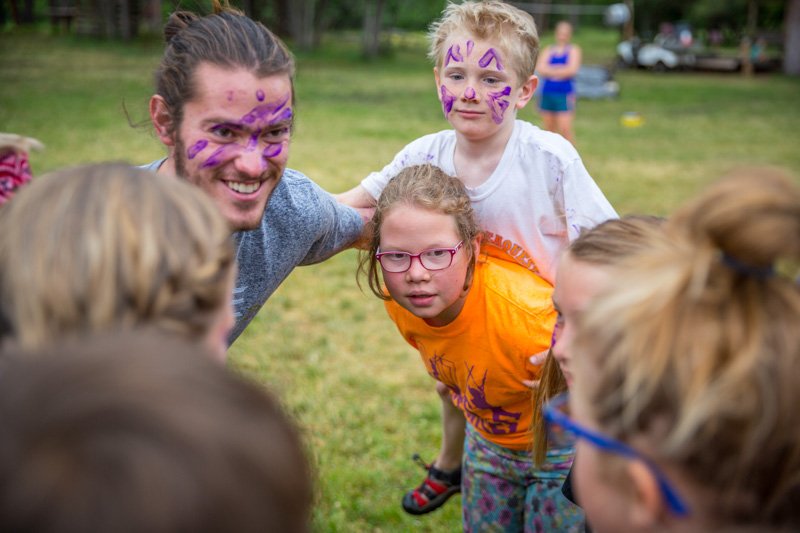We camp people have a running joke that working at a camp is great until we get old enough to
get a “real job.” The joke has been running for so long, however, that many people (including
some of those in camp careers) believe that camp work doesn’t count as a “real job.” As we
directors train staff in so many areas every year, and as our professional and accreditation
standards continue to rise, we live more and more with the realization that summer camp work is
real work. By the metrics that measure the investment and value that make something a “real
job,” camp counselors, behind-the-scenes staff, cooks and guides all have really real jobs.
Counselors develop the ability to nurture the faith, psychological, and social development of
children and youth through focused conversations, cooperative labors, and play. They develop
their ability to maintain calm and perspective in ever-changing and high-stress situations. They
become better able to remain kind and loving in the face of difficult situations and personalities.
They get better at conflict resolution (for themselves and for campers) within a small community
of diverse personalities and interests. All of these skills will pay dividends in whatever career
field they pursue later in life.
Behind-the-scenes staff learn to improvise solutions to problems (sometimes suddenly-appearing
ones, like dance parties on a rainy night) that involve material logistics, fast-paced timing, and
creative dimensions. They develop their ability to acquire competencies quickly in skills that
benefit every work environment, such as maintenance and repair. They realize their talents for
selfless service and a philosophy of doing whatever it takes to support the mission of the
organization.
Cooks learn to pace food preparation and cooking in order to serve nutritious, hot meals three
times a day to one hundred people, while operating within the bounds of a state-regulated
commercial kitchen. They learn better how to communicate with colleagues in a high-pressure
environment, supporting and assisting each other under circumstances where predictability and
change are both important. They gain perspective on how mundane tasks affect the overall camp
experience of those they serve.
Guides learn how to balance the emotional and social needs of adolescence while encouraging
their backpackers to rise to new challenges and try new tasks. They learn how to communicate
and implement plans based on the risks of backcountry environments with young people who
lack perspective on the hidden dangers of such environments. They develop skills of leadership
“from in front” and “from behind” to offer the possibility of growth to youth of diverse
backgrounds and ability levels.
All camp staff learn how to develop practical skills that serve an intrinsic motivating force:
benefitting children and youth in their faith, social, and psychological development. Rarely do
camp staff work at summer camp for the money; they are living out the experience of working
for a higher purpose than paying the bills. Making the determination to work hard for the benefit
of others even for less pay speaks to camp staff’s ability to see their future careers in the context
of a bigger picture. At a Christian camp like Sonlight, staff also learn how to articulate theirexperiences of faith and ethics in such a way to as teach campers, enrich each other, and test their
convictions for later adulthood.
Initial research into the impact of camp employment on workplace competencies has begun to
bear out these benefits. The American Camp Association is awaiting the results of a five-year
research project into the benefits of camp which will include the effects on camp staff. For
further reading on the published research so far, see Mat Duerden, et al, The Impact of Camp
Employment on the Workforce Development of Emerging Adults (2014), available through
ResearchGate.net.
Next time you talk with someone planning to work at a summer camp, resist the urge to ask them
about what their “real job” will be in the future. Instead, tell them you appreciate how much
they’ll impact the lives of youth for God, and how the work will make them a greater blessing to
employers for the rest of their lives.
~ emrys
Co-Director at Sonlight

